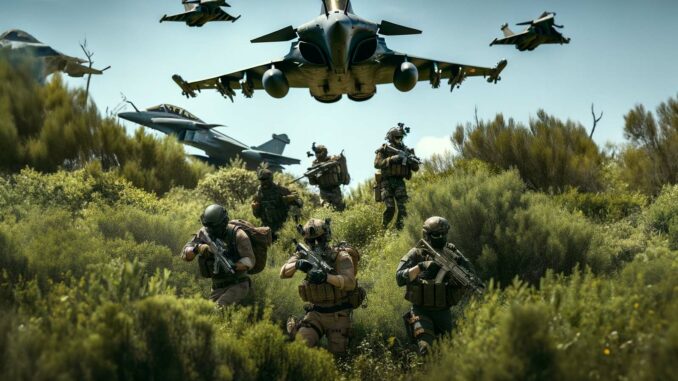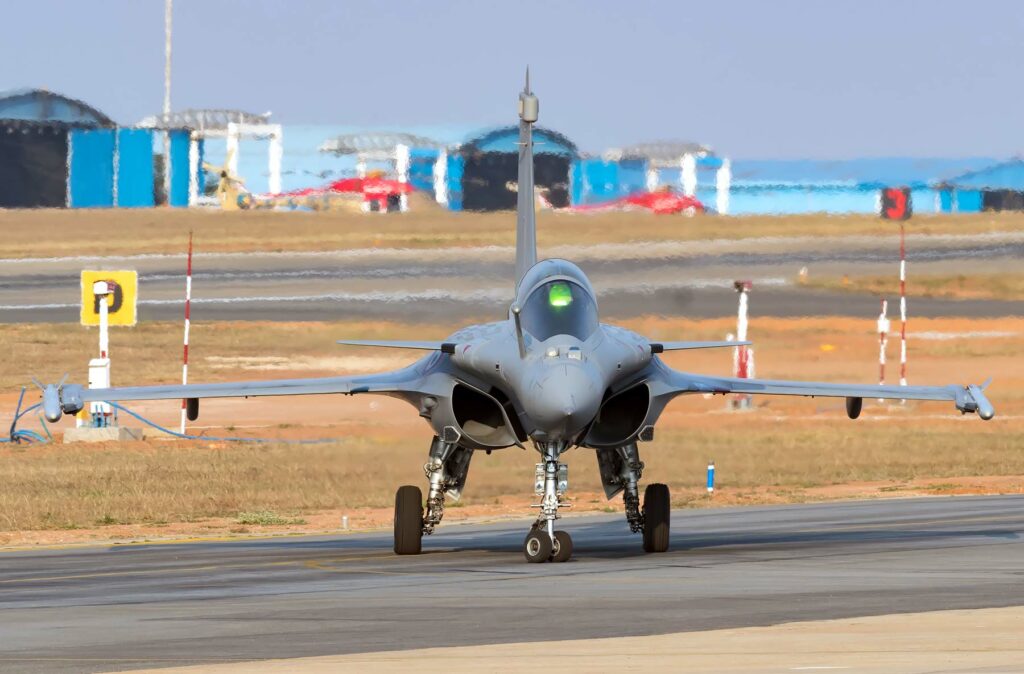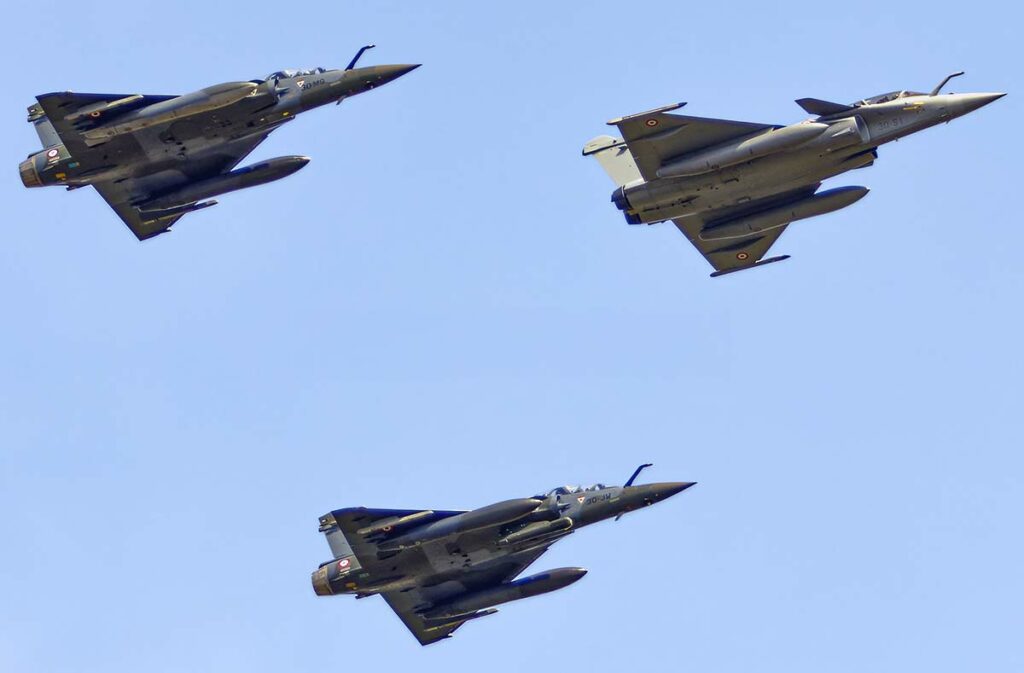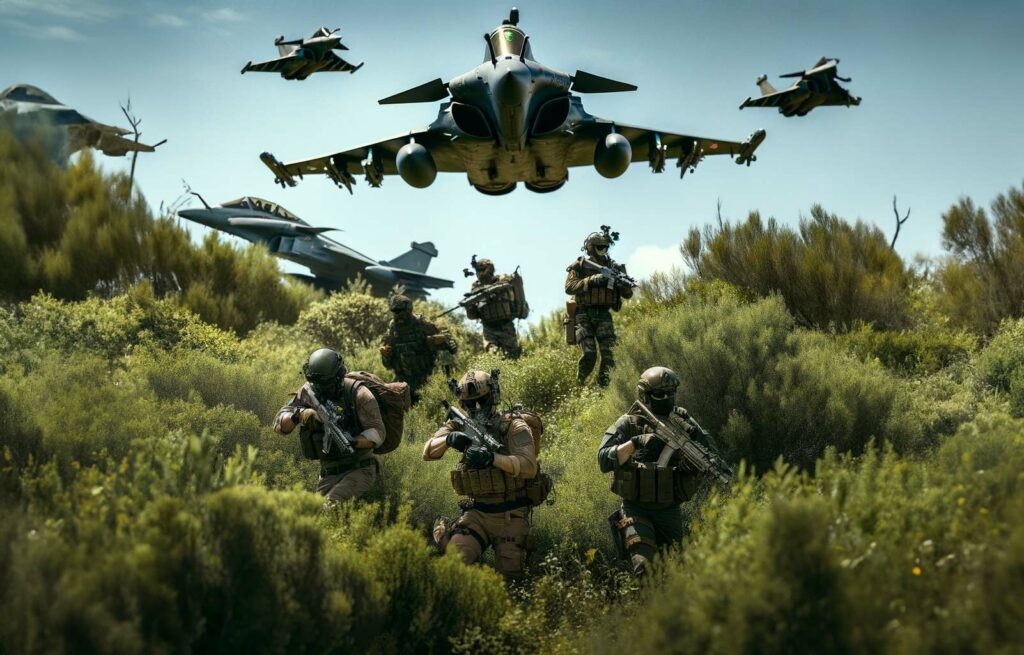
In Special Forces operations, air support is crucial to mission success. This includes the provision of fire support, aerial reconnaissance and rapid troop transport. The Dassault Rafale, a latest-generation multirole fighter, offers advanced air capabilities, making it a strategic asset in support of Special Forces operations. Its agility, versatility and sophisticated armament make it an optimal choice to meet the varied needs of these elite units. This presentation aims to examine in detail how the Rafale is used to support Special Forces operations, highlighting its technical features, operational advantages and impact on the field.

Special forces missions
Definition of Special Forces
Special Forces are elite military units trained to carry out complex and sensitive missions, often in hostile territory. Their intensive training enables them to operate in extreme conditions, with speed and discretion. They are equipped for specific operations such as hostage rescue, unconventional warfare or direct action. Thanks to their versatility, special forces play a crucial role in modern military strategy, adapting their skills to a variety of threat scenarios.
Main Special Forces missions
Special Forces are engaged in a wide range of missions, including specialized intelligence, in-depth reconnaissance, counter-terrorism and asymmetric warfare. They are often deployed to neutralize strategic targets, gather critical data on the enemy, or conduct hostage rescue operations. For example, in 2011, Operation Neptune Spear saw US Navy SEALs eliminate Osama bin Laden in Pakistan, demonstrating the effectiveness of Special Forces counter-terrorism.
Specific air support requirements for these missions
Air support is vital for Special Forces, providing essential tactical superiority in their operations. Fighter aircraft such as the Dassault Rafale play a crucial role, providing air cover, executing precision strikes, or deploying troops into conflict zones. The Rafale, with its versatility, its ability to operate in all types of missions, and its cutting-edge technology, is perfectly adapted to meet the specific requirements of special forces. Its use in Afghanistan since 2007 illustrates its effectiveness, where it has carried out reconnaissance and ground support missions, demonstrating its ability to operate in complex and demanding environments.
Dassault Rafale capabilities
Rafale presentation
The Dassault Rafale is an omnirole fighter designed by French company Dassault Aviation. Its advanced design incorporates state-of-the-art technologies, providing unrivalled operational versatility. Capable of carrying out all airborne missions: interception, reconnaissance, ground support, nuclear strike and deterrence, the Rafale stands out for its ability to carry a large payload over long distances. Equipped with sophisticated electronic systems, it ensures undeniable air superiority, with optimized maneuverability and radar stealth, enhanced by its aerodynamic profile and radar-absorbent coating.
The Rafale’s air-to-ground attack capabilities
The Rafale excels in air-to-ground attack missions, armed with a wide range of guided and unguided munitions. Its ability to carry a wide range of weapons, including SCALP cruise missiles, AASM laser-guided bombs and GPS-guided bombs, enables it to strike with surgical precision. The Rafale’s flexibility is illustrated by its modular weapons system, which can be rapidly adapted to suit mission requirements, offering adaptive strike capability against both fixed and moving targets. Its role in Libya in 2011, where it carried out precise strikes in support of ground forces, bears witness to its exceptional operational capabilities.
The Rafale’s rapid, unobtrusive response capabilities
The Rafale is designed for rapid, discreet intervention, thanks to its supersonic speed, its ability to penetrate hostile environments, and its low radar signature. Its stealth technology, although not comparable to fifth-generation aircraft, reduces its detection by enemy radars, facilitating discreet approaches. It is also capable of providing effective close-in fire support, backing up ground troops with speed and precision. The combination of its speed, maneuverability and sophisticated armament enables the Rafale to respond rapidly to any threat, ensuring air superiority and optimal ground support, as demonstrated by its effective deployment in Mali in 2013 for targeted strikes and reconnaissance missions.

Rafale operational support for Special Forces
Direct air support for special operations
The Rafale, Dassault Aviation’s flagship fighter, stands out for its ability to provide direct and effective air support for special operations. Its versatility enables it to take part in a variety of missions, from precise fire support to the neutralization of strategic targets. Thanks to its advanced technology, it can operate day and night, in difficult weather conditions, ensuring continuous coverage. The Rafale’s precision strike capabilities are illustrated by its use in the Libyan conflict in 2011, where it played a key role in the success of allied missions.
Aerial reconnaissance and surveillance for special forces
In terms of reconnaissance and surveillance, the Rafale excels thanks to its state-of-the-art equipment, which enables vital information to be gathered in real time. Its advanced sensor systems, including long-range radars and electro-optical sensors, provide extensive surveillance capability, essential for Special Forces operations. This capability makes it possible to identify and track targets, monitor areas of strategic interest and provide critical information for mission planning and execution. The effectiveness of these systems has been demonstrated in Afghanistan, where Rafales have carried out in-depth reconnaissance missions, contributing significantly to the success of ground operations.
Integration with other air and ground assets for joint operations
The Rafale’s ability to integrate with other air and ground platforms is a major asset for joint operations, particularly with special forces. Its compatibility with various communications systems and its ability to exchange information in real time enable effective coordination and better decision-making. This interoperability is crucial to the success of complex missions, where perfect synchronization between different elements is required. The Rafale has proven this capability on international missions, such as in Mali, where its role was essential in coordinating with other air and ground forces to achieve successful, integrated operations.

Examples of Rafale use in support of Special Forces
Recent operations where the Rafale has been deployed to support Special Forces missions
Dassault Aviation’s iconic Rafale fighter has been involved in a number of recent operations, providing crucial support to Special Forces. For example, during Operation Serval in Mali in 2013, the Rafale played a decisive role in mission success, providing immediate air support, carrying out precise strikes against terrorist strongholds and securing areas for ground intervention. This rapid response capability helped to disrupt armed groups and provide effective support to ground troops.
Analysis of successes and challenges
The Rafale’s successes in these operations reflect its ability to provide effective and adaptable air support. Its versatility, strike precision and ability to operate in complex environments are major assets. However, challenges remain, notably the need for precise coordination with forces on the ground, and the management of collateral risks. Minimizing damage to civilians and adapting to rapid changes in the theater of operations demands a high level of responsiveness and seamless coordination.
Feedback from Special Forces operators and Rafale pilots
Feedback underlines the importance of collaboration between Rafale pilots and special forces. Operators particularly appreciate the Rafale’s ability to intervene quickly, its operational flexibility, and the precision of its fire support, which are crucial in critical moments. Pilots, for their part, emphasize the importance of understanding the specific needs of special forces to optimize their support. This feedback contributes to the continuous improvement of tactics and strategies, enhancing the effectiveness of joint missions.
War Wings Daily is an independant magazine.